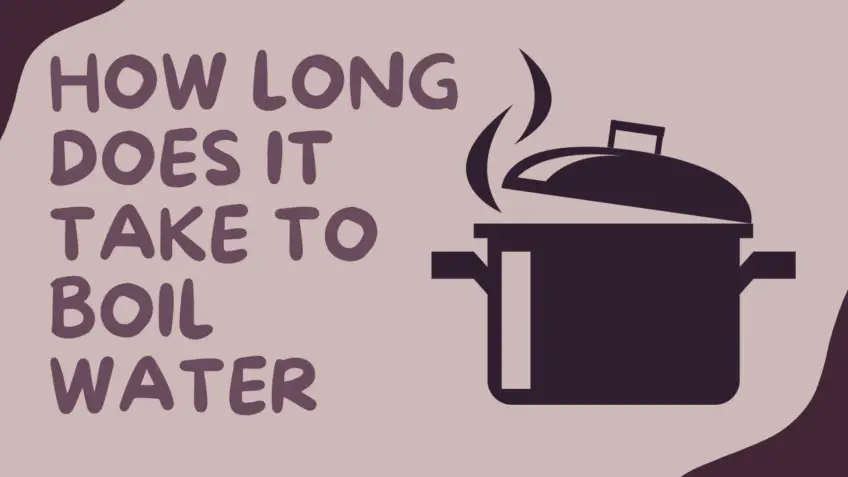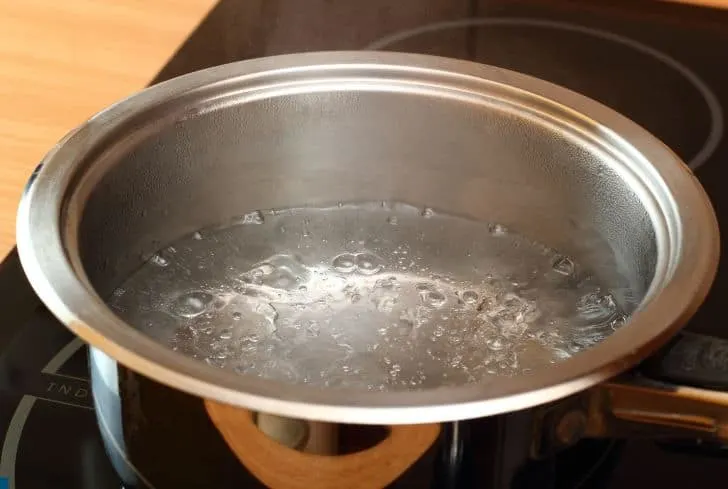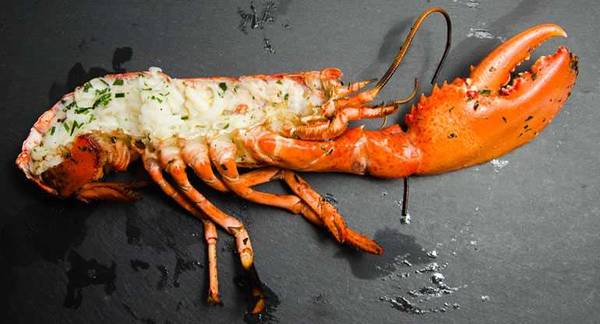How Many BTUs Does It Take to Boil 1 Pound of Water?
If you’re a home cook or professional chef, you may be curious about how much energy is required to boil water. While the answer can vary depending on a number of factors, we’ve put together an in-depth guide to help you understand how many BTUs it takes to boil 1 pound of water and why this question is so frequently asked.
What are BTUs, and How Do They Relate to Cooking?
BTU stands for British thermal unit, which is a measure of heat energy. In the context of cooking, BTUs are used to describe the amount of energy required to raise the temperature of a specific amount of food or liquid.
When it comes to cooking appliances like gas stoves and outdoor grills, BTUs can indicate how powerful the appliance is and how quickly it can heat up your ingredients. Higher BTU output generally means more power and faster cooking times.
What is a BTU?
A BTU is defined as the amount of energy required to increase the temperature of one pound of water by one degree Fahrenheit at sea level. In other words, it’s the amount of heat energy needed to make one pound of water hotter by one degree.
The concept of a BTU dates back to the Industrial Revolution, when steam engines were being developed and engineers needed a way to quantify how much heat was being produced by burning coal. Today, it’s still used as a convenient way to describe heating and cooling processes in many different industries.
How Much Energy Does It Take to Boil Water?
The amount of energy required to boil water depends on several factors, including the starting temperature of the water, the air pressure at your location (which affects boiling point), and the type of pot or stove you’re using.
For instance, let’s say you want to boil 1 pound of water, which has a specific heat capacity of approximately 1 BTU per pound per degree Fahrenheit. If you start with room temperature water at 68 degrees Fahrenheit and want to bring it to a boil at sea level, you’ll need to add 180 degrees Fahrenheit (212 degrees – 32 degrees) of heat energy. That means you’d need approximately 180 BTUs to boil one pound of water at sea level.
Factors Affecting Energy Required to Boil Water
As mentioned earlier, several factors can impact how much energy is required to bring a pot of water to boiling point. Here are a few additional details about these factors:
- Altitude and Air Pressure: As altitude increases, air pressure decreases, and the boiling point of water lowers as well. This means that you’d need less energy (in the form of BTUs) to boil water at high altitudes compared to at sea level.
- Type of Pot and Stove Being Used: Different types of pots and stoves have different heat-conducting properties that can impact cooking times and energy usage. For instance, thicker pots may require more energy input than thinner ones since they retain heat better. Similarly, gas stoves may use more or less gas depending on the quality and efficiency of their burners.
- Starting Temperature of Water: The temperature you start with can also affect how much energy is required to boil water. If your tap water is already fairly hot, it will require less additional energy than if it were starting out cold.
How Many BTUs Does It Take to Boil 1 Pound of Water?
Using the calculations discussed earlier, it’s possible to estimate how many BTUs you’d need to boil one pound of water under various conditions. However, keep in mind that these estimates are general and might not apply perfectly to every cooking scenario.
For instance, if you were using a thin metal pot on a high-powered gas stove at sea level, you could probably boil one pound of water with as little as 50-60 BTUs. But if you were using a cast iron Dutch oven over coals at high altitude, you may need closer to 200 BTUs or more.
Real World Examples
Here are some examples of the BTU outputs and average cook times for various types of stoves:
| Stove Type | BTU Output | Average Cook Time for 1 lb. Water |
| Gas Stove (High Powered) | 12,000 | 2-3 minutes |
| Electric Stove (Standard) | N/A (measured in watts) | 5-8 minutes (depending on wattage) |
| Campfire (Open Flame) | Varies based on wood quality and burn time | 10-15 minutes (depending on heat source and pot size) |
| Induction Stove (Single Burner) | 1,500-2,500 watts | 3-5 minutes |
Of course, the actual times and energy input needed to cook one pound of water can vary widely depending on factors like pot size and starting temperature. These estimates should serve as general guidelines only.
How to Monitor Energy Usage While Cooking
If you’re keen on tracking your energy usage while cooking, there are a few techniques you can use to monitor how many BTUs you’re adding to a dish. Here are some tips:
- Use a Thermometer: Measure the temperature of your dish periodically while cooking to gauge how much energy you might need to add (or subtract) to achieve your desired results.
- Time Your Cooking Sessions: Use a timer to keep track of how long it takes for your dish to cook from start to finish, and record this information in a journal.
- Measure Your Fuel or Energy Input: If you’re using gas stoves or grills, keep track of how much fuel is being consumed during each cooking session. This can help you estimate how much energy you’ve added to the dish.
Conclusion
In summary, while there’s no definitive answer to the question of how many BTUs it takes to boil one pound of water, we hope this guide has given you a better understanding of the factors that can impact energy usage when cooking. By experimenting with different pots, stoves, and cook times, you can find the right balance of energy efficiency and flavor for all your favorite dishes.
1. How many BTUs does it take to boil 1 pound of water in a stovetop kettle?
It typically takes around 1,000 BTUs to bring a pound of water to a boil on a standard stovetop kettle. However, the exact amount can vary depending on factors such as altitude, humidity, and the material of the kettle.
2. Can I use an electric kettle to boil 1 pound of water?
Yes, an electric kettle can be used to boil 1 pound of water. However, the amount of BTUs required may differ from that of a stovetop kettle. Typically, an electric kettle uses around 1,500 watts, which is equivalent to approximately 5,118 BTUs.
3. Do I need more BTUs to boil larger amounts of water?
Yes, you will need more BTUs to boil larger amounts of water. The specific amount required will depend on how much water you are boiling and the method used for heating it. For example, boiling 2 pounds of water may require around 2,000 BTUs or more.
4. Why does the amount of BTUs needed change based on the method and materials used?
The amount of BTUs needed to boil water can vary based on several factors, including the method and materials used for heating. For instance, heating water with gas typically requires more BTUs than electric heating due to differences in efficiency. Additionally, materials such as copper tend to transfer heat faster than aluminum or steel, which affects the heating time and amount of energy required.






